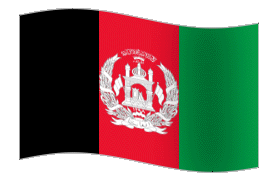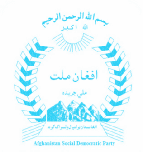NO QUICK FIXES
By: Ajmal Shams
It has been more than two years since the Taliban were overthrown and the US backed
administration, led by Hamid Karzai, took charge of Afghanistan. Ever since the
Taliban’s vanishing from the scene, there is a growing sense of optimism that that
after decades of war and bloodshed, Afghanistan might be back on track and peace
and peace and stability will return to the war-
Among many initiatives taken by the government in economic sector, the issue of new
currency was a big achievement. However, it will be difficult to keep the inflation
rate at constant low level without having a permanent economic base. The main hurdles
in the way of economic are political instability, absence of centralized national
army, internal conflicts, warlordism and security concerns posed by remnants of Taliban
and Al-
It would be overoptimistic to expect quick solutions to these problems, which have taken roots over years of foreign interference, war and instability. However, the presence of political will on the part of Afghan leadership and commitment from Western Powers would pave the way for lasting peace and prosperity in the country. It should be emphasized that a peaceful and prosperous Afghanistan is in the interest of the region and the international community at large.
Afghanistan needs continuous flow comprehensive aid packages for building its highways,
irrigations systems, hydropower plants, schools and hospitals. The country is not
deficient in natural resources. Nevertheless, it is the financial and to some extent
the human capital for which Afghanistan has to rely on affluent and technologically
advanced nations. Afghanistan has a huge potential to earn substantial amounts of
foreign exchange by boosting its agriculture production. Therefore, investment in
the agriculture sector would bring about rapid improvements in agro-
United nations and other relief organizations popularly known as Non-
There might be some truth in that these NGOs have not made any noteworthy achievement
in community development, however, most people do not realize that these NGOs work
in specific areas, mostly conducting small-
Secondly, recruitment of staff should be strictly on merit and there should be no
favoritism and nepotism impacting the hiring of employees. Well-
Education and healthcare are two of the most significant indicators of human development index. Afghan government needs to prioritize these two sectors of social development. Quality education that is reflective of the ideals of Afghan society and meets the challenges of the 21st century should be provided to all Afghans without any gender discrimination. Similarly better healthcare centers should be established across the country and provision of clean drinking water and better sanitation facilities should be ensured.
Afghanistan has certain unique features that make it distinct among nations in terms
of its potential for growth and socio-
The writer is President of the Afghanistan Social Democratic Party (well know as
Afghan Millat National Progressive Party) -
دافغان ملت ملي مترقي ګوند

Afghanistan Social Democratic Party

Copyright © Afghan Millat 2007-